|
|
|
Книги издательства «Cambridge University Press»
|
Scholars have generally assumed that authoritarianism and rule of law are mutually incompatible. Convinced that free markets and rule of law must tip authoritarian societies in a liberal direction, nearly all studies of law and contemporary politics have neglected that improbable coupling: authoritarian rule of law. Through a focus on Singapore, this book presents an analysis of authoritarian legalism. It shows how prosperity, public discourse, and a rigorous observance of legal procedure have enabled a reconfigured rule of law such that liberal form encases illiberal content. Institutions and process at the bedrock of rule of law and liberal democracy become tools to constrain dissent while augmenting discretionary political power — even as the national and international legitimacy of the state is secured. This book offers a valuable and original contribution to understanding the complexities of law, language and legitimacy in our time. |
|
Using fossils to tell geological time, biostratigraphy balances biology with geology. In modern geochronology — meaning timescale-building and making correlations between oceans, continents and hemispheres — the microfossil record of speciations and extinctions is integrated with numerical dates from radioactive decay, geomagnetic reversals through time, and the cyclical wobbles of the earth-sun-moon system. This important modern synthesis follows the development of biostratigraphy from classical origins into petroleum exploration and deep-ocean drilling. It explores the three-way relationship between species of microorganisms, their environment and their evolution through time as expressed in skeletons preserved as fossils. This book is essential reading for advanced students and researchers working in basin analysis, sequence stratigraphy, palaeoceanography, palaeobiology and related fields. |
|
This is a major new approach to the military revolution and the relationship between warfare and the power of the state in early modern Europe. Whereas previous accounts have emphasised the growth of state-run armies during this period, David Parrott argues instead that the delegation of military responsibility to sophisticated and extensive networks of private enterprise reached unprecedented levels. This included not only the hiring of troops but their equipping, the supply of food and munitions, and the financing of their operations. The book reveals the extraordinary prevalence and capability of private networks of commanders, suppliers, merchants and financiers who managed the conduct of war on land and at sea, challenging the traditional assumption that reliance on mercenaries and the private sector results in corrupt and inefficient military force. In so doing, the book provides essential historical context to contemporary debates about the role of the private sector in warfare. |
|
This book is the first in-depth study of the actual role that the Russian Constitutional Court played in protecting fundamental rights and resolving legislative-executive struggles and federalism disputes in both Yeltsin's and Putin's Russia. Trochev argues that judicial empowerment is a non-linear process with unintended consequences and that courts that depend on their reputation flourish only if an effective and capable state is there to support them. This is because judges can rely only on the authoritativeness of their judgments, unlike politicians and bureaucrats, who have the material resources necessary to respond to judicial decisions. Drawing upon systematic analysis of all decisions of the Russian Court (published and unpublished) and previously unavailable materials on their (non-)implementation, and resting on a combination of the approaches from comparative politics, law, and public administration, this book shows how and why judges attempted to reform Russia's governance and fought to ensure compliance with their judgments. |
|
States that now contemplate constitutional reform often grapple with the question of whether to constitutionalise social rights. This book presents an argument for why, under the right conditions, doing so can be a good way to advance social justice. In making such a case, the author considers the nature of the social minimum, the role of the court among other institutions, the empirical record of judicial impact, and the role of constitutional text. He argues, however, that when enforcing such rights, courts ought to adopt a theory of judicial restraint structured around four principles: democratic legitimacy, polycentricity, expertise, and flexibility. These four principles, when taken collectively, commend an incrementalist approach to adjudication. The book combines theoretical, doctrinal, empirical and comparative analysis, and is written to be accessible to lawyers, social scientists, political theorists and human rights advocates. |
|
Building on their successful cases and materials book, Collins, Ewing and McColgan present an entirely restructured and freshly written new textbook on employment law. Comprehensive and engaging, it combines detailed analysis and commentary on the law with short contextual extracts to fully equip the labour law student. Carefully balancing clear exposition of legal principles with critical and scholarly analysis, this is the definitive textbook on the subject written by the UK's foremost employment law scholars. The book's 20-part structure maps logically onto either a full or half module employment law course. Chapter introductions and conclusions and an uncluttered text design carefully guide the student through the material. Innovative case studies show the law 'in action' and discussion of the globalised workplace gives the work a contemporary feel. Put simply, this is required reading for all students of the subject. |
|
Distance learning presents language teachers and learners with a new set of challenges, opportunities and practical realities. This book presents a comprehensive overview of important issues within the field and explores the ways in which all participants are adapting their practices in response to the new learning environment. |
|
Language attrition describes the loss of, or changes to, grammatical and other features of a language as a result of declining use by speakers who have changed their linguistic environment and language habits. In such a situation there may, for example, be simplification in the tense system or in certain properties of subordinate clauses; some vocabulary items might fall into disuse and phonetic features may be restructured. These changes can be affected by features of the speaker's environment, but also by his or her attitudes and processes of identification. This book provides a detailed and up-to-date introduction to the way in which language attrition can affect language, as well as to the extra and sociolinguistic features involved. It also familiarizes the reader with experimental approaches to attrition and data analysis techniques and provides hands-on guidelines on how to apply them. |
|
Produced with University of Cambridge International Examinations. Produced with University of Cambridge International Examinations, the Toolkit helps teachers to develop language awareness to support their students with the academic language they need to be successful in subjects taught through English. With reflective questions and activities, it can be used either for self-study or in training modules. Useful for both content and English language teachers, it is aimed primarily at those who teach students for whom English is not their first language — for example as part of a bilingual or CLIL programme or in an international English-medium school. |

|
The rapid endangerment and death of many minority languages across the world is a matter of widespread concern, not only among linguists and anthropologists but among all concerned with issues of cultural identity in an increasingly globalized culture. By some counts, only 600 of the 6,000 or so languages in the world are 'safe' from the threat of extinction. A leading commentator and popular writer on language issues, David Crystal asks the fundamental question, Why is language death so important?, reviews the reasons for the current crisis, and investigates what is being done to reduce its impact. The book contains not only intelligent argument, but moving descriptions of the decline and demise of particular languages, and practical advice for anyone interested in pursuing the subject further. |
|
Language demonstrates structure while also showing considerable variation at all levels: languages differ from one another while still being shaped by the same principles; utterances within a language differ from one another while exhibiting the same structural patterns; languages change over time, but in fairly regular ways. This book focuses on the dynamic processes that create languages and give them their structure and variance. It outlines a theory of language that addresses the nature of grammar, taking into account its variance and gradience, and seeks explanation in terms of the recurrent processes that operate in language use. The evidence is based on the study of large corpora of spoken and written language, what we know about how languages change, as well as the results of experiments with language users. The result is an integrated theory of language use and language change which has implications for cognitive processing and language evolution. |
|
What do all human languages have in common and in what ways are they different? How can language be used to trace different peoples and their past? Are certain languages similar because of common descent or language contact? Assuming no prior knowledge of linguistics, this textbook introduces readers to the rich diversity of human languages, familiarizing students with the variety and typology of languages around the world. Linguistic terms and concepts are explained, in the text and in the glossary, and illustrated with simple, accessible examples. Eighteen language maps and numerous language family charts enable students to place a language geographically or genealogically. A supporting website includes additional language maps and sound recordings that can be used to illustrate the peculiarities of the sound systems of various languages. 'Test yourself' questions throughout the book make it easier for students to analyze data from unfamiliar languages. |
|
As the leading student text in the field, this title provides both a detailed examination of the law of the World Trade Organization and a clear introduction to the basic principles and underlying logic of the world trading system. It explores the institutional aspects of the WTO together with the substantive law. New to this edition are examinations of the WTO rules on the protection of intellectual property and the rules on technical barriers to trade and sanitary and phytosanitary measures. Assignments are integrated throughout to allow students to assess their understanding, while chapter summaries reinforce learning. In addition further-reading sections have been added to each chapter and exercises have been included to draw on primary sources and real-life trade scenarios, enabling students to hone their practical and analytical skills. The title is an essential tool for any student of the WTO, either at undergraduate or postgraduate level. |
|
The Cold War ideological battle with universal aspirations has given way to a clash of cultures as the world concurrently moves toward globalization of economies and communications and balkanization through a clash of ethnic and cultural identities. Traditional liberal theory has confronted daunting challenges in coping with these changes and with recent developments such as the spread of postmodern thought, religious fundamentalism, and global terrorism. This book argues that a political and legal philosophy based on pluralism is best suited to confront the problems of the twenty-first century. Pointing out that monist theories such as liberalism have become inadequate and that relativism is dangerous, the book makes the case for pluralism from the standpoint of both theory and its applications. The book engages with thinkers, such as Spinoza, Kant, Hegel, Rawls, Berlin, Dworkin, Habermas, and Derrida, and with several subjects that are at the center of current controversies, including equality, group rights, tolerance, secularism confronting religious revival, and political rights in the face of terrorism. |
|
Traditionally, the curriculum has been regarded as a statement of what should be done in a course of study. The Learner-Centred Curriculum takes as its starting point what is done by language teachers in their classes. Nunan develops a concept of the negotiated model in which the curriculum is a collaboration between teachers and students. The author looks at the curriculum from a teacher's perspective and reports on what instructors focus on in planning, implementing, and evaluating language courses. He synthesizes theoretical models and recent empirical studies, and considers the vital part by curriculum design in coordinating the many aspects of language teaching. |
|
Robert Schumann had a difficult start as a composer. Denied any significant musical upbringing, he took a long time through indirect routes to establish himself as a major composer. Persistent illness also dogged his work. His final catastrophic mental collapse has combined with the autobiographical and secretive aspects of his music to cast for posterity a veil of ominous mystery over his entire life. Yet this is only one view. Schumann battled his personal demons and was acutely self-aware and organized. He transformed himself from a brilliant youthful fantasist in small forms into a composer of extended works in every genre. This book provides a new focus on Schumann as a practical working musician interacting with the professional world to develop his creative gifts to the full, and examines the central role of Clara Wieck Schumann in helping to bring this about. |
|
Much of international law, like much of contract, is enforced not by independent sanctions but rather through cooperative interaction among the parties, with repeat dealings, reputation, and a preference for reciprocity doing most of the enforcement work. Originally published in 2006, The Limits of Leviathan identifies areas in international law where formal enforcement provides the most promising means of promoting cooperation and where it does not. In particular, it looks at the International Criminal Court, the rules for world trade, efforts to enlist domestic courts to enforce orders of the International Court of Justice, domestic judicial enforcement of the Geneva Convention, the domain of international commercial agreements, and the question of odious debt incurred by sovereigns. This book explains how international law, like contract, depends largely on the willingness of responsible parties to make commitments. |
|
A handy beginner's guide, this textbook introduces the various stages of linguistic fieldwork, from the preparation of the work to the presentation of the results. Drawing on over forty years of fieldwork experience between them, in over two dozen languages, the authors pack the book with examples and anecdotes from their experiences and include practical exercises for students to test what they have learned. Independent of any particular perspective, the methods can be applied to a wide range of fieldwork settings, for projects with very different theoretical backgrounds and without the need to travel too far. The book covers 'traditional fieldwork' such as language description and documentation, as well as less typical methods, including language contact and quantitative studies with experiments or questionnaires. |
|
This collection of ten essays, originally published in 1989, by leading scholars of the time from five countries brings together some of the most important economic contributions to the Third World Congress for Soviet and East European Studies. First published at a time when the eastern bloc in general was confronting major economic problems, the essays in this volume combine both topicality and detailed scholarly analysis, addressing such significant topics as energy conservation, regional development and technological innovation. Although written primarily from an economic standpoint, both the approach and language used should be accessible to scholars in the related fields of politics and development studies, for whom the questions raised in this volume are likewise of great importance. |
|
John Pocock is arguably the most original and imaginative historian of ideas of modern times. Over the past half century he has created an audience for his work which is truly global, and he has marked the way in which the history of political thought is studied as deeply and personally as any historian of the period. The essays in this major new collection are selected from a lifetime of thinking about political thought, and how we should study it in history. What in fact does it mean to write the history of a political society, and what kind of political thought is this? Professor Pocock emphasises both the theory and practice of political thought considered as action in history, and the political theory of historiography considered as a form of political thought. Together these essays constitute a collection that any serious student of politics and intellectual history needs to possess. |
|